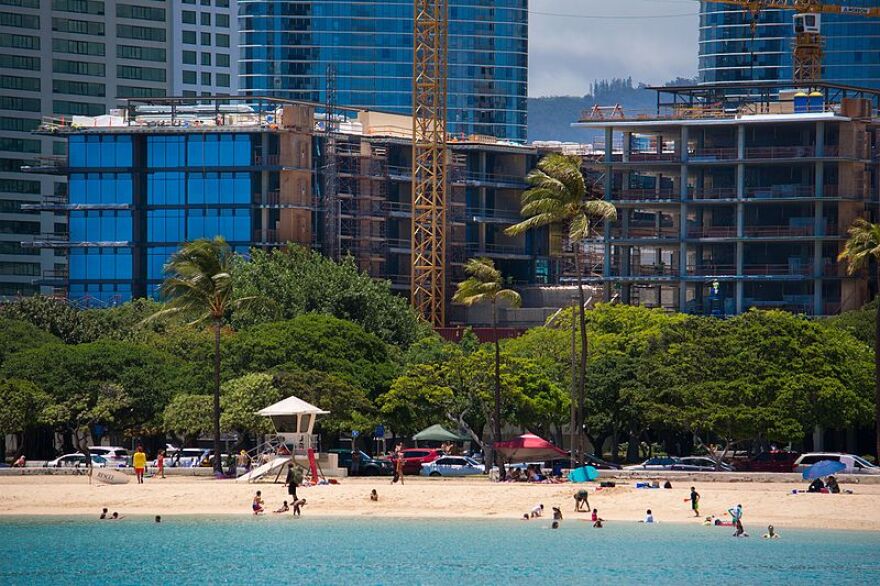Officials with the City and County of Honolulu want to build more affordable rental housing. But rather than directly fund construction, they have prepared a package of incentives to make those type of projects more appealing to developers.
Urban Honolulu is full of middle-class apartment buildings, but most were built years ago. Mayor Kirk Caldwell and City Council Member Kymberly Pine are hoping that a package of tax incentives and more permissive building code standards will make smaller, more affordable appartment developments for profitable for builders.
At a press conference in the Honolulu neighborhood of Makiki, Caldwell said that demand for housing has far outstripped supply in recent years. He stated that there is currently demand for 25,000 units that do not currently exist.
The Caldwell adminsitration has committed to adding 800 units of so-called workforce housing every year, but acknowledged that much more is needed. Flanked by several private sector developers, Caldwell said that the key to generating more construction in the private sector is to reduce the cost per square foot to around $225. The mayor said that is the "magic number" that will change current trends.
Developers on hand were supportive of the plan. Derek Lock described it as a "great collaboration" and said that the regulatory changes will give landowners more options for redeveloping their properties. Marshall Hung, after whom Caldwell named the initative (a tongue in cheek reference to the spending plan that rebuilt post-World War II Europe), helped write the legislative proposal. He lauded the temporary property tax exemptions as a tool for spurring construction.
Councilmember Kymberly Pine indicated that the plan has the support of the city council, saying that she hoped to fast-track the proposal for legislative approval. Pine held up the plan as an example of effective partnership between the public and private sectors.
The bill must first be considered by the independent Honolulu Planning Commission before the city council may vote on it.



